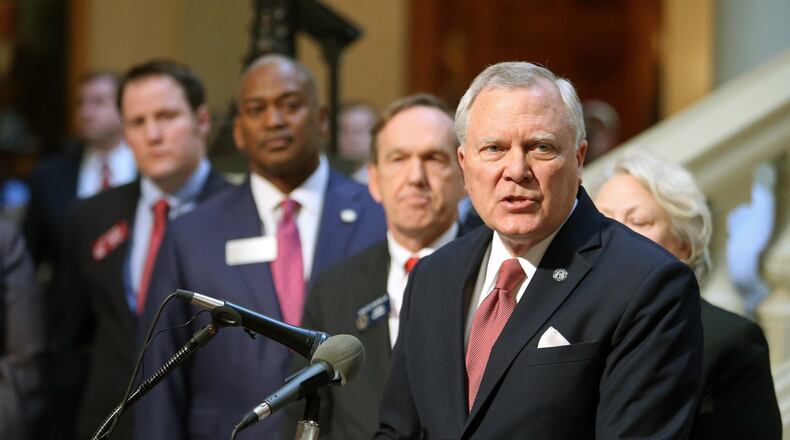Gov. Nathan Deal devoted much of his political capital in his first term toward an ambitious overhaul of the state's criminal justice system. He's building his second around fundamental changes to how the state operates and pays for its school system.
They seem like an incompatible mix for a governor who will be inevitably pulled toward building legacy projects as his final term in public office draws closer to an end. But Deal’s insistence that the two are inextricably linked will shape his last years in the Governor’s Mansion.
“Education reform is the ultimate criminal justice reform,” Deal said. “It’s all tied together. They all have a common thread. Because if someone isn’t qualified, they are not going to do well in school, in the jobs market or in life.”
Deal enters the second year of his final term in January with an agenda that seems to scream to legislators that he’s not yet a lame duck. He wants to rewrite how the state funds schools, ensure Georgia has a conservative judiciary for decades to come and give his office new powers to take control of failing classrooms.
And while it won’t be a part of any speech he will give, he is seeking to consolidate new powers in his office that will become an indelible part of his record in Georgia.
About the Author
The Latest
Featured



